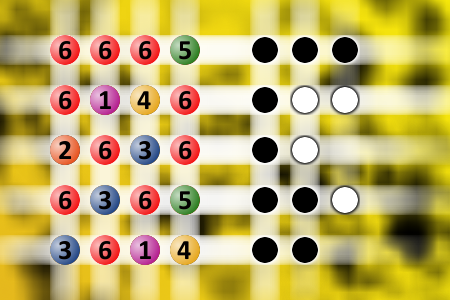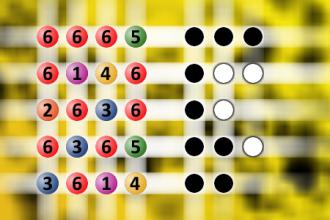What a winning combination?
The computer chose a secret code (sequence of 4 digits from 1 to 6). Your goal is to find that code. Black circles indicate the number of hits on the right spot. White circles indicate the number of hits on the wrong spot.Correct answers: 24
The first user who solved this task is Nasrin 24 T.
#brainteasers #mastermind

Worms
Little Johnny watched the science teacher start the experiment with the worms. Four worms were placed into four separate jars.
The first worm was put into a jar of alcohol
The second worm was put into a jar of cigarette smoke.
The third worm was put into a jar of sperm.
The fourth worm was put into a jar of soil.
After one day, these were the results:
The first worm in alcohol - dead.
Second worm in cigarette smoke - dead.
Third worm in sperm - dead.
Fourth worm in soil - alive.
So the Science teacher asked the class - "What can you learn from this experiment."
Little Johnny quickly raised his hand and said - "As long as you drink, smoke and have sex, you won't have worms."

